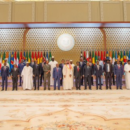The Kimberley Process and diamond demand – by Jolyon Ford at Oxford Analytica

 The research and advocacy group Global Witness focuses on conflict and corruption involved in natural resources sectors. It has now announced that it intends quitting the Kimberley Process Certification Scheme intended to prevent “˜conflict’ or “˜blood’ diamonds flowing into global supply chains.
The research and advocacy group Global Witness focuses on conflict and corruption involved in natural resources sectors. It has now announced that it intends quitting the Kimberley Process Certification Scheme intended to prevent “˜conflict’ or “˜blood’ diamonds flowing into global supply chains.
The withdrawal was not unforeseen. Civil society groups boycotted the KP’s most recent plenary meeting and reacted strongly to its early November decision to allow the resumption of certified diamond exports from Zimbabwe. Some civil society groups expressed doubts about the prospects for new monitoring mechanisms proposed for that country.
The November move raised two main issues beyond the role of diamond revenues in Zimbabwe’s own political economy. The first relates to the future of the KP itself, and how the health of the KP relates to the industry it regulates. Civil society groups are – along with governments and the diamond industry – one of the scheme’s three legs. Without the participation of the civil society coalition, the KP’s ability to fulfil its purpose – reassuring buyers about the social and security context in which a stone was extracted – will be undermined. Will its credibility survive without civil society groups like Global Witness re-engaging in 2012? Is the KP “˜stronger’ for having compromised (so preserving unity) or “˜weaker’ for having done so? What prospects are there for a “˜KP-Plus’ – or what alternative scheme(s) might emerge? How will the World Diamond Council’s members reconcile their position with groups such as Responsible Jewellery Council? What would the impact be on consumers in the West if the KP fails to reconcile – and will a weaker KP have the same effect on traders and consumers in the Middle East, India, China and elsewhere?
The November plenary saw the United States elected to the KP’s rotating chair. Previously opposed to re-admitting Zimbabwe exports, its concessions at the plenary can be understood as having ensured that the scheme remains intact. Civil society groups will probably base their 2012 strategies on whether they see any prospects for Washington using its chair to introduce and implement reforms to the KP.
The second issue is broader than the KP. What do the problems of collective action attending the KP mean for other broad or sector-specific multi-stakeholder mechanisms designed to mitigate social harms relating to natural resource development? The KP was seen as the flagship in a new generation of hybrid regulatory efforts. The progress it produced and promised cannot necessarily be translated into sectors dealing with other minerals; on the other hand, problems or even collapse of the KP do not mean that other industry-supported schemes are doomed.
Jolyon Ford is a senior analyst at Oxford Analytica, the global analysis and advisory firm.






[…] Ford , a senior analyst at Oxford Analytica, the global analysis and advisory firm, writes in African Arguments that the November plenary saw the United States elected to the KP’s rotating chair. […]
The one great achievement of the KP is its certificate. Every export and import of rough diamonds has to have one. That certificate gives the country of origin of the diamonds. Subsequent processors and sellers currently require guarantees that the original rough was properly certified. It would not need much to extend this to specifying the country of origin down line. In this way consumers could choose whether or not to buy diamonds from specific countries – Angola, Botswana, the Congo, Sierra Leone, Zimbabwe, etc. – or possibly producers – De Beers, Rio Tinto, BHP, etc. Alternatively a down stream certificate might be produced that specified that the diamonds did not come from any KP non fully compliant source.